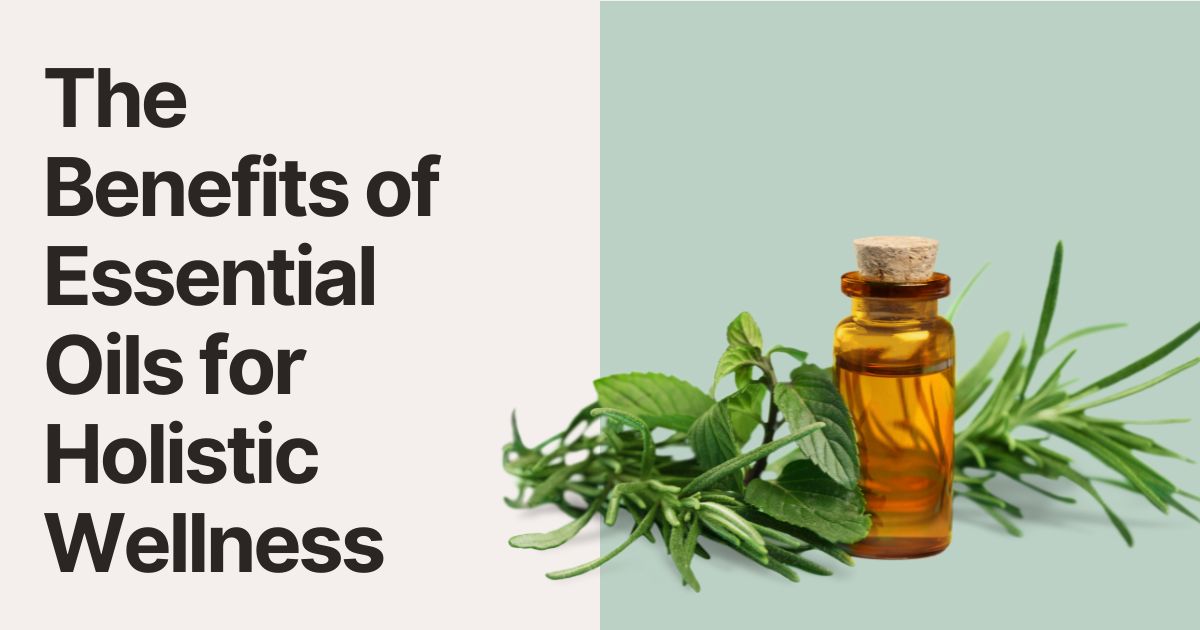Introduction to Essential Oils in Holistic Health Practices
In the realm of holistic health practices, essential oils have emerged as a cornerstone, celebrated for their multifaceted benefits and deep-rooted history in natural wellness. These potent plant extracts encapsulate the essence of their source, offering a spectrum of therapeutic properties that have been harnessed for centuries. Today, as we delve into the world of essential oils, we embark on a journey to uncover how these natural elixirs can enhance holistic wellness, providing a beacon of balance and harmony in our fast-paced lives.
The story is as ancient as some of the world’s oldest civilizations. Historians trace their use back to the Egyptian pharaohs, who employed aromatic oils for beauty care, culinary purposes, spiritual practices, and even in embalming. The Greeks and Romans furthered this legacy, utilizing essential oils for therapeutic massages, healing, and in their baths, recognizing their potent benefits for both the mind and body. This age-old wisdom has cascaded through generations, anchoring essential oils in the fabric of holistic health practices.
At their core, essential oils are the concentrated essences extracted from the flowers, leaves, stems, roots, or fruits of plants. This extraction, typically achieved through steam distillation or cold pressing, captures the plant’s aromatic compounds, offering a direct conduit to nature’s healing powers. Each oil boasts a unique chemical composition that dictates its aroma, color, and therapeutic attributes, enabling a tailored approach to wellness that can address a wide array of health concerns and promote overall well-being.
The Multifaceted Benefits of Essential Oils for Holistic Wellness
Diving into the heart of holistic therapy, they emerge as versatile allies. They serve not just as tools for physical health but also as catalysts for emotional balance and mental clarity. The practice of aromatherapy, a pivotal aspect of holistic aromatherapy, leverages these oils to stimulate the senses, evoke emotions, and trigger memories, facilitating a profound connection between the mind, body, and spirit.
Lavender Oil: A Tranquility Elixir
- Stress and Anxiety Relief: Lavender oil is widely acknowledged for its ability to calm the nervous system, reducing stress and easing anxiety. Its soothing scent promotes a sense of peace and relaxation.
- Sleep Enhancement: By fostering a relaxed state, lavender oil can significantly improve sleep quality, aiding in the treatment of insomnia and promoting restful nights.
- Skin Care: Beyond its calming aroma, lavender oil also offers benefits for the skin, helping to soothe irritation and promote healing.
Peppermint Oil: An Energizing Essence
- Digestive Health: Peppermint oil is renowned for its ability to alleviate digestive issues, offering relief from symptoms of IBS and nausea.
- Pain Relief: The cooling sensation of peppermint oil makes it effective in soothing headaches and muscle pain, providing natural relief.
- Mental Clarity: Its invigorating aroma can enhance focus and energy levels, making peppermint oil a favorite for those seeking a mental boost.
Frankincense Oil: The Ancient Healer
- Anti-Inflammatory Properties: Frankincense oil is celebrated for its ability to reduce inflammation, offering a natural solution for various inflammatory conditions.
- Immune Support: With its immune-boosting properties, frankincense oil can fortify the body’s defenses, supporting overall health and well-being.
- Emotional Balance: The grounding aroma of frankincense can also aid in emotional wellness, promoting feelings of peace and stability.
Tea Tree Oil: Nature’s Antiseptic
- Antimicrobial Action: Tea tree oil is a powerful natural antiseptic, effective in combating bacteria, viruses, and fungi, making it a staple for natural healthcare.
- Skin Health: Its cleansing properties are beneficial for skin health, particularly in treating acne and other skin conditions.
- Immune Enhancement: By bolstering the body’s natural defenses, tea tree oil supports a robust immune system, contributing to holistic wellness.
Eucalyptus Oil: The Respiratory Reviver
- Respiratory Health: Eucalyptus oil is known for its ability to clear respiratory pathways, easing breathing and offering relief from colds and congestion.
- Pain Relief: With its analgesic properties, eucalyptus oil can alleviate pain, particularly related to joint and muscle discomfort.
- Mental Clarity: The refreshing scent of eucalyptus promotes mental alertness and clarity, aiding in concentration and cognitive function.
Frequently Asked Questions (FAQs)
- Can essential oils be ingested?
- Most essential oils should not be ingested unless under the guidance of a healthcare professional. It’s crucial to use them safely, primarily through inhalation or topical application when diluted.
- How do I choose high-quality essential oils?
- Look for oils that are labeled as “100% pure” and check for the botanical name of the plant on the label. It’s also beneficial to choose oils from reputable, well-established companies.
- Can essential oils be used during pregnancy?
- Some essential oils can be safe during pregnancy, but it’s essential to consult with a healthcare provider first, as certain oils should be avoided.
- Are there essential oils that should be avoided with children?
- Yes, some essential oils can be too strong for children. It’s always best to consult with a pediatrician and use oils that are considered safe for kids, typically in lower concentrations.
- How can I use essential oils for stress relief?
- Essential oils like lavender and bergamot can be inhaled directly, diffused in your living space, or applied topically (when diluted) to pulse points for stress relief.
- Can essential oils interact with medications?
- Yes, essential oils can interact with certain medications. Consult with a healthcare provider to ensure safe use, especially if you are on prescription medications.
